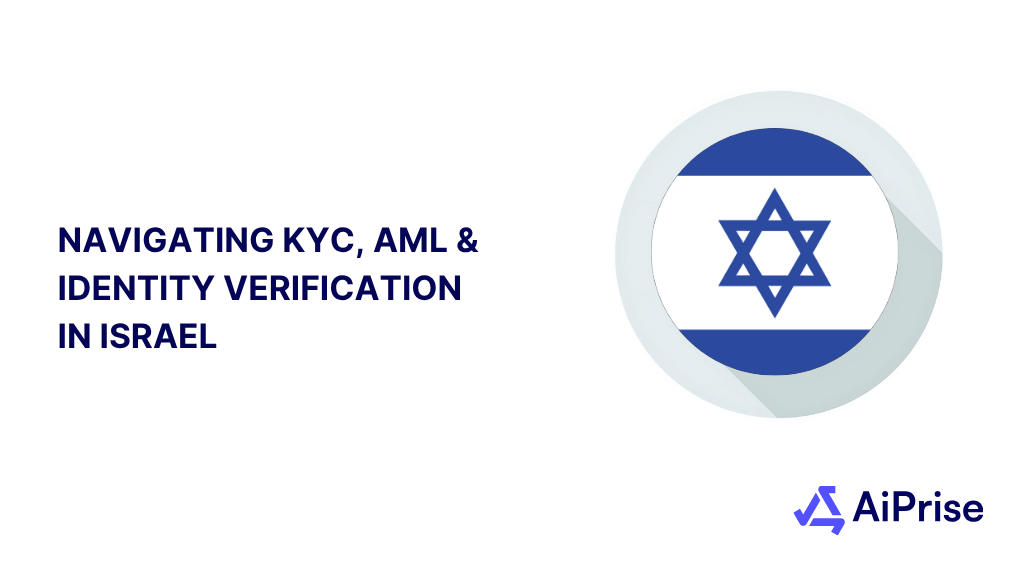AiPrise
11 min read
May 20, 2025
Navigating KYC, AML, and Identity Verification in Serbia

Key Takeaways










Operating in Serbia's evolving economic landscape presents exciting opportunities. However, overlooking the critical safeguards of Know Your Customer (KYC) and Anti-Money Laundering (AML) is akin to participating in a high-stakes game without knowing the rules.
For businesses engaging with Serbia, understanding and implementing robust KYC and AML measures isn't just about compliance; it's about protecting your interests and contributing to a transparent and secure business environment.
This guide will provide you with the essential knowledge to navigate Serbia's regulatory landscape effectively, ensuring your operations are both compliant and secure. We'll explore the key aspects of identifying your customers and preventing financial crime, empowering you to conduct business in Serbia with confidence.
Understanding Serbia’s Regulatory Landscape
Serbia has established a clear regulatory landscape to prevent financial crime. Businesses operating here must be familiar with the key legislation and the authorities that enforce it. Let’s break down these essential pillars:
- Key Legislation: The primary legal foundation for combating money laundering and the financing of terrorism in Serbia is the Law on the Prevention of Money Laundering and Financing of Terrorism. This comprehensive piece of legislation outlines the obligations of various entities, including financial institutions, real estate agents, casinos, and other designated non-financial businesses and professions (DNFBPs).
- It mandates the implementation of KYC procedures.
- It establishes internal AML controls.
- It obligates the reporting of suspicious transactions.
- Regulatory Authorities: The Administration for the Prevention of Money Laundering (APML) serves as Serbia's Financial Intelligence Unit (FIU). Operating under the Ministry of Finance, the APML is central to combating financial crime by:
- Receiving, processing, analyzing, and disseminating information on suspected money laundering and terrorist financing.
- Acting as the primary recipient of Suspicious Transaction Reports (STRs).
- Holding significant powers, including the ability to suspend transactions and monitor client financial operations.
- Coordinating closely with law enforcement agencies.
The National Bank of Serbia (NBS) plays a crucial role in supervising the financial sector. It issues guidelines and ensures that financial institutions, such as banks, adhere to AML and KYC regulations.
- Risk-based Approach: This principle recognizes that not all customers or business relationships present the same level of risk. Therefore, the level of due diligence required should be proportionate to the assessed risk. This approach involves categorizing risk levels into the following:
- Low-Risk: Typically involves established domestic companies with transparent ownership and a history of legitimate transactions. Simplified Due Diligence (SDD) may be applied.
- Standard-Risk: Applies to the majority of business relationships and requires standard KYC procedures, including verifying identity and understanding the nature of the business.
- High-Risk: Includes Politically Exposed Persons (PEPs), entities from jurisdictions identified as high-risk, and businesses operating in sectors with a higher propensity for financial crime. Enhanced Due Diligence (EDD) is mandatory. It involves a more in-depth scrutiny, including verifying the source of funds and wealth, conducting more frequent monitoring, and obtaining approval from senior management for the relationship.
Now that we've set the stage, let's roll up our sleeves and see what mastering KYC in Serbia is all about.
Essential Requirements for KYC in Serbia

Know Your Customer (KYC) is the first line of defense against financial crime. By establishing clear procedures to identify and understand their customers, businesses can build trust and mitigate risks. Here are the core principles and processes that underpin effective KYC in Serbia:
- Customer Identification: This involves verifying the identity of your clients, whether they are individuals or legal entities.
- For a Person: This typically requires obtaining and verifying identifying documents such as national ID cards (lična karta), passports, or driver's licenses. You must record key details, such as full name, date and place of birth, address, and, potentially, their unique identification number (JMBG).
- For Legal Entities: Identifying a company involves obtaining official registration documents, the company's name, registration number, registered address, legal form, and the names of directors and authorized representatives.
- Beneficial Ownership Identification: A crucial aspect, especially for legal entities, is identifying the beneficial owner(s)—the person(s) who ultimately own or control the entity, even through complex ownership structures. This requires going beyond nominal ownership to understand who truly benefits from the business relationship.
- Understanding the Nature of the Business Relationship: It's essential to understand why the customer is engaging with your business. This involves gathering information about the purpose of the relationship, the types of transactions that are expected, and the source of the funds or wealth involved.
- Ongoing Monitoring: KYC isn't a one-time process. Businesses in Serbia must continuously monitor their existing customer relationships for any changes in circumstances, unusual transaction patterns, or activities that might indicate a higher risk of money laundering or terrorist financing.
KYC Procedures at Onboarding
When establishing a new business relationship in Serbia, the typical KYC process involves these steps:
- Customer Identification: Collecting the required identification documents and information as outlined above.
- Verification: Authenticating the provided documents and information using reliable sources and methods.
- Risk Assessment: Evaluating the customer's risk profile based on various factors, such as their identity, business type, geographical location, and the nature of the intended transactions. This determines the level of due diligence required.
- Documentation: Maintaining comprehensive records of all KYC information and the verification process.
Triggering Events for KYC Updates
Businesses in Serbia are obligated to refresh or update their KYC information for existing customers in several situations, including:
- Significant Changes in Customer Circumstances: This could include changes in ownership, management, business activities, or address.
- Legal Requirements: When new laws or regulations necessitate updates to customer information or due diligence procedures.
- Trigger Events Based on Risk: For higher-risk customers, more frequent KYC updates may be required.
- Doubt About the Accuracy of Existing Information: If there's reason to believe that the previously collected KYC information is no longer accurate or reliable.
Next, let’s unravel how effective identity verification can be achieved in Serbia.
Practical Identity Verification in Serbia
Accurately verifying the identity of both individuals and legal entities is a cornerstone of effective KYC and AML compliance in Serbia. Let’s explore the acceptable documents and the practical methods businesses can employ for robust identity verification.
Acceptable Identification Documents in Serbia
- For Individuals:
- National ID Card (lična karta): The primary form of identification for Serbian citizens. It must include a photograph, personal details (such as name, date of birth, and address), a validity date, and the official holographic seal.
- Passport: A valid international travel document. Verify the photograph, personal details, issuance and expiry dates, and any signs of tampering.
- Residence Permits: For foreign nationals residing in Serbia, a valid residence permit is essential. Check the type of permit, validity period, and the personal details of the holder.
- Driver's License: While primarily used for driving, it can sometimes be accepted as supplementary identification, especially when combined with another primary form of identification.
- For Legal Entities:
- Certificate of Registration (Izvod iz registra privrednih subjekata): Obtained from the Serbian Business Registers Agency (APR - Agencija za privredne registre), this document confirms the company's existence and provides key details, including the company name, registration number, registered address, legal form, and the names of the legal representatives.
- Articles of Association (Osnivački akt/Statut): This document outlines the company's purpose, ownership structure, and internal regulations. Review it to understand the entity's nature and identify beneficial owners.
- Power of Attorney (Punomoćje): If an individual is acting on behalf of a legal entity, a valid power of attorney is required, clearly outlining their authorized powers. Verify the authenticity of the document and the identity of the grantor.
- VAT Certificate (Potvrda o poreskom identifikacionom broju - PIB): Confirms the company's VAT registration number.
Verification Techniques in Serbia
- Physical Document Verification:
- Examine Original Documents: Always strive to view original documents rather than copies.
- Check Security Features: Look for holograms, watermarks, security threads, and other features that indicate authenticity.
- Compare Information: Ensure the details across different documents provided by the same individual or entity are consistent.
- Train your staff: Equip them with the knowledge to identify potentially fraudulent documents.
- Digital Identity Verification: While evolving in Serbia, explore available electronic databases or services that allow for cross-referencing the provided information with official records. This might involve government databases or reputable third-party providers.
- Video Identification: For remote onboarding, video verification can be used. This involves:
- Live interaction with the individual.
- Displaying the identification document to the camera.
- Asking security questions to confirm identity.
- Recording the session for audit purposes. Ensure compliance with data protection regulations.
- Reliance on Third Parties: Under certain conditions, Serbian regulations may allow reliance on regulated third parties (e.g., other financial institutions) that have already conducted KYC and identity verification. However, it's crucial to understand the specific legal requirements and ensure the third party's procedures are robust and compliant with Serbian law.
Now, let’s switch gears and examine what anti-money laundering measures look like within Serbia.
Anti-Money Laundering (AML) Measures in Serbia
Effective AML in Serbia means more than just identifying customers; it involves actively preventing illicit financial flows through ongoing vigilance and robust procedures. Here are the key AML measures businesses must implement:
- Transaction Monitoring: Continuously track customer transactions for unusual patterns or activities that could signal money laundering, using systems and setting alerts for suspicious behavior.
- Reporting Suspicious Transactions (STRs): If suspicious activity is detected, promptly report it to the Serbian Financial Intelligence Unit (APML) with all relevant details, maintaining confidentiality.
- Record Keeping: Maintain detailed records of customer KYC information, transaction data, and any filed STRs for the legally required period, ensuring data security and accessibility for authorities.
- Internal Controls and Training: Establish clear AML policies and procedures, appoint a Compliance Officer, and provide regular training to employees on AML regulations and how to identify and report suspicious activity.
With a solid grip on AML measures, how about we tackle some real-world challenges you might face on the ground?
Addressing the Challenges in Identity Verification
While Serbia has made strides in establishing its KYC and AML frameworks, the practical implementation of robust identity verification processes can present several challenges for businesses. Addressing these hurdles is crucial for maintaining compliance and mitigating risks:
- Document Fraud: The risk of encountering fraudulent or falsified identification documents, both for individuals and legal entities, is a persistent concern. Employ multi-layered verification (document checks, data cross-referencing), and explore digital verification tools with security features.
- Remote Onboarding: Verifying the identity of customers who are not physically present poses significant challenges. Utilize secure digital identity verification (eKYC) with facial recognition or video verification, ensuring compliance with data privacy.
- Beneficial Ownership Complexity: Identifying the true beneficial owners of legal entities, especially those with complex ownership structures involving multiple layers or offshore entities, can be challenging. Scrutinize corporate registries, ownership declarations, and use specialized databases if available.
- Language Barriers: Dealing with international customers or documents not in Serbian can create obstacles in understanding and verifying the provided information. Use certified translation services for accurate document review.
With the hurdles clearly defined, how can technology ease these pains? Discover how AiPrise supports KYC and AML compliance effortlessly.
How AiPrise Supports KYC, AML, and Identity Verification in Serbia

Navigating the complexities of KYC, AML, and identity verification in Serbia doesn't have to be a cumbersome process. AiPrise offers a suite of advanced solutions designed to streamline these critical compliance requirements, empowering businesses to operate securely and efficiently within the Serbian regulatory landscape.
- Business Verification: Verify Serbian businesses with global registry data and UBO & stakeholder verification.
- User Verification: Build trust with Serbian users through methods like One Click KYC and support for local documents.
- Fraud & Risk Scoring: Prevent fraud during onboarding with customizable rules and comprehensive data analysis.
- Compliance Co-Pilot: An AI-powered assistant to streamline compliance processes and reduce review time.
- One Click KYC: Enables fast and efficient KYC using just an ID number and a selfie.
Establishing robust KYC, AML, and identity verification processes is not just about adhering to regulations in Serbia; it's about fostering a secure and trustworthy business environment. By implementing these measures effectively, you protect your organization and contribute to the integrity of the Serbian market.
Are you ready to enjoy a stress-free AML compliance journey in Serbia and build stronger, more secure partnerships? Book a demo with AiPrise today and discover how our tailored solutions can empower your business.
You might want to read these...

AiPrise’s data coverage and AI agents were the deciding factors for us. They’ve made our onboarding 80% faster. It is also a very intuitive platform.










.jpeg)


.jpg)




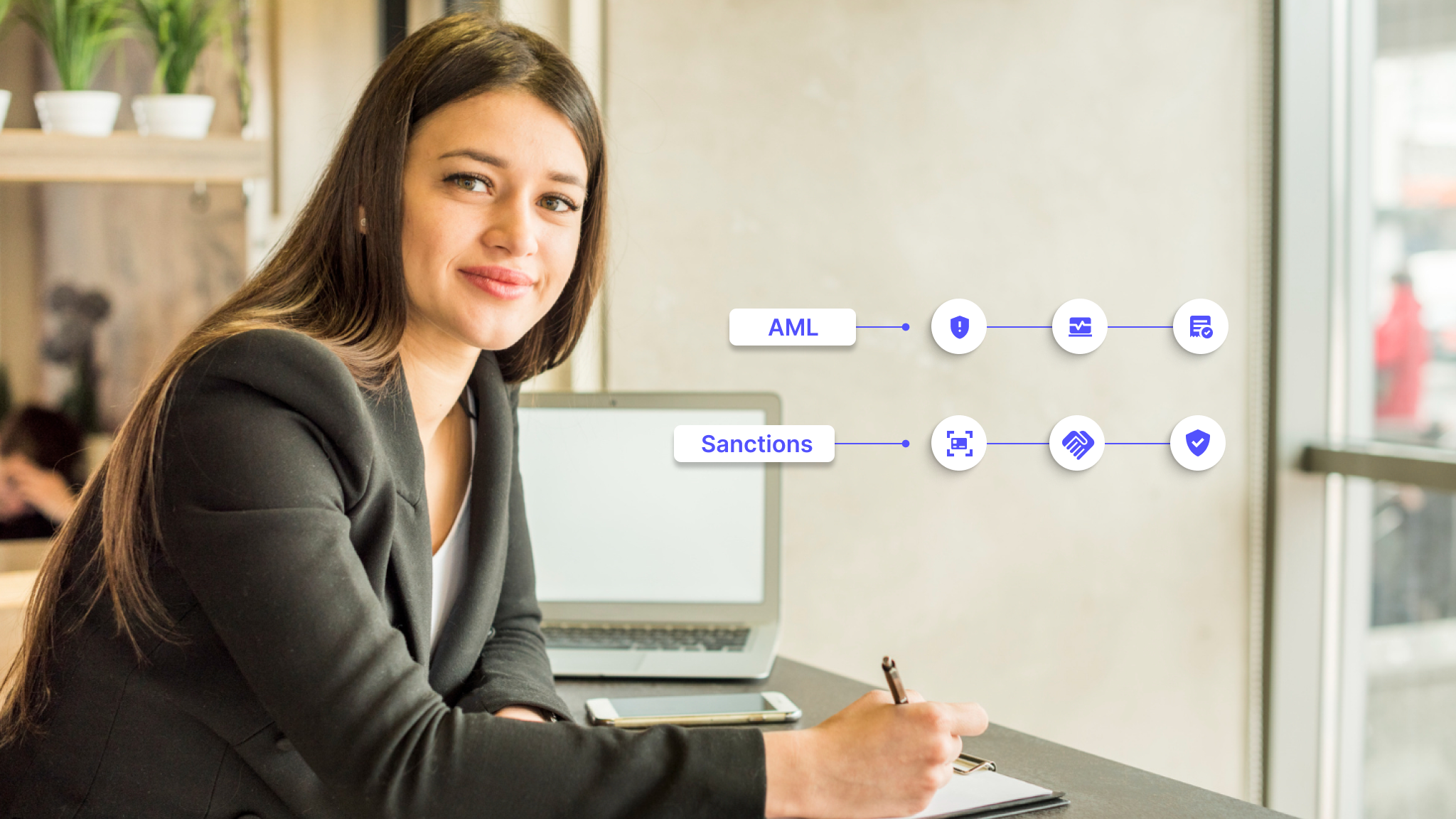













.jpeg)



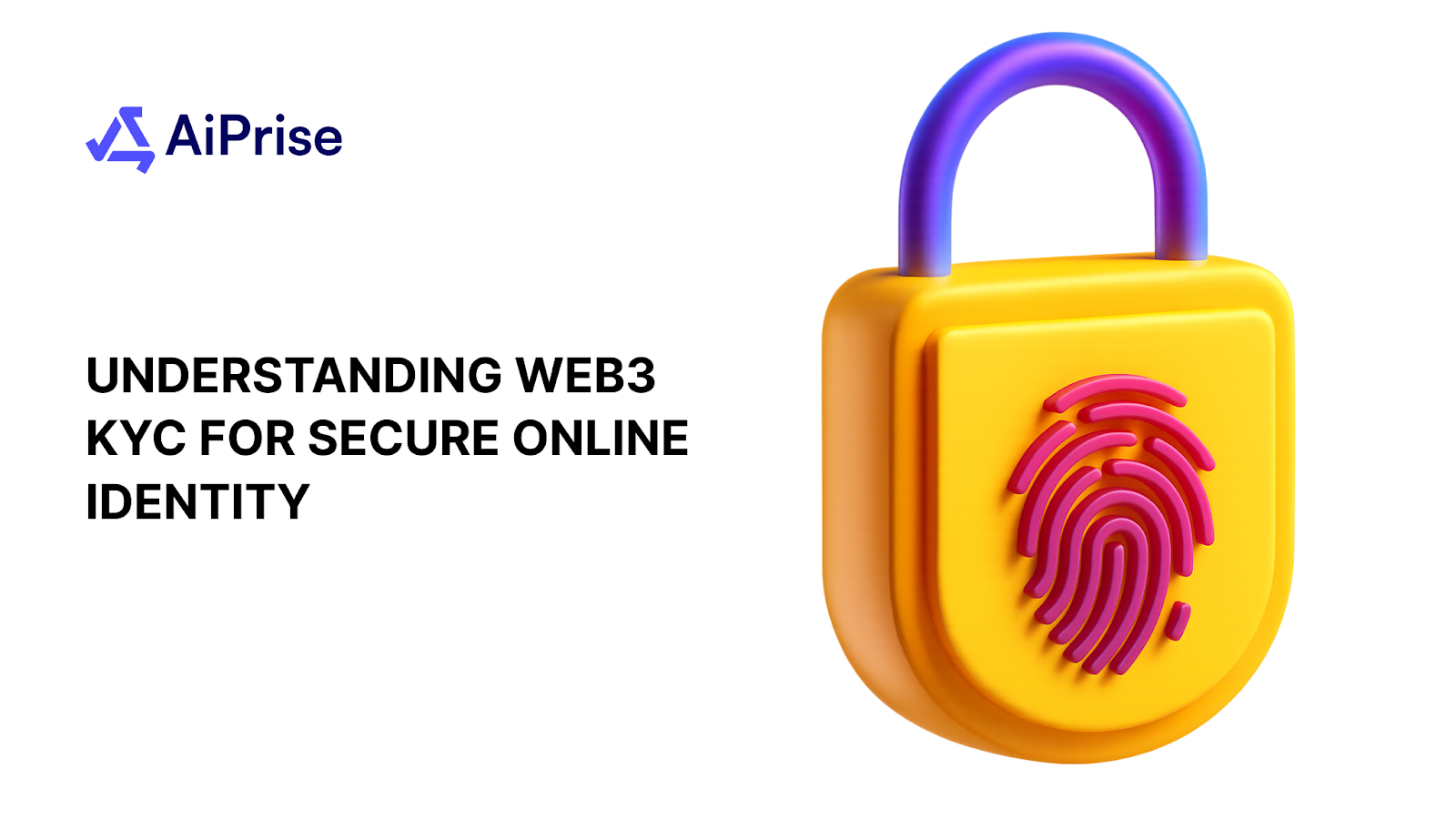
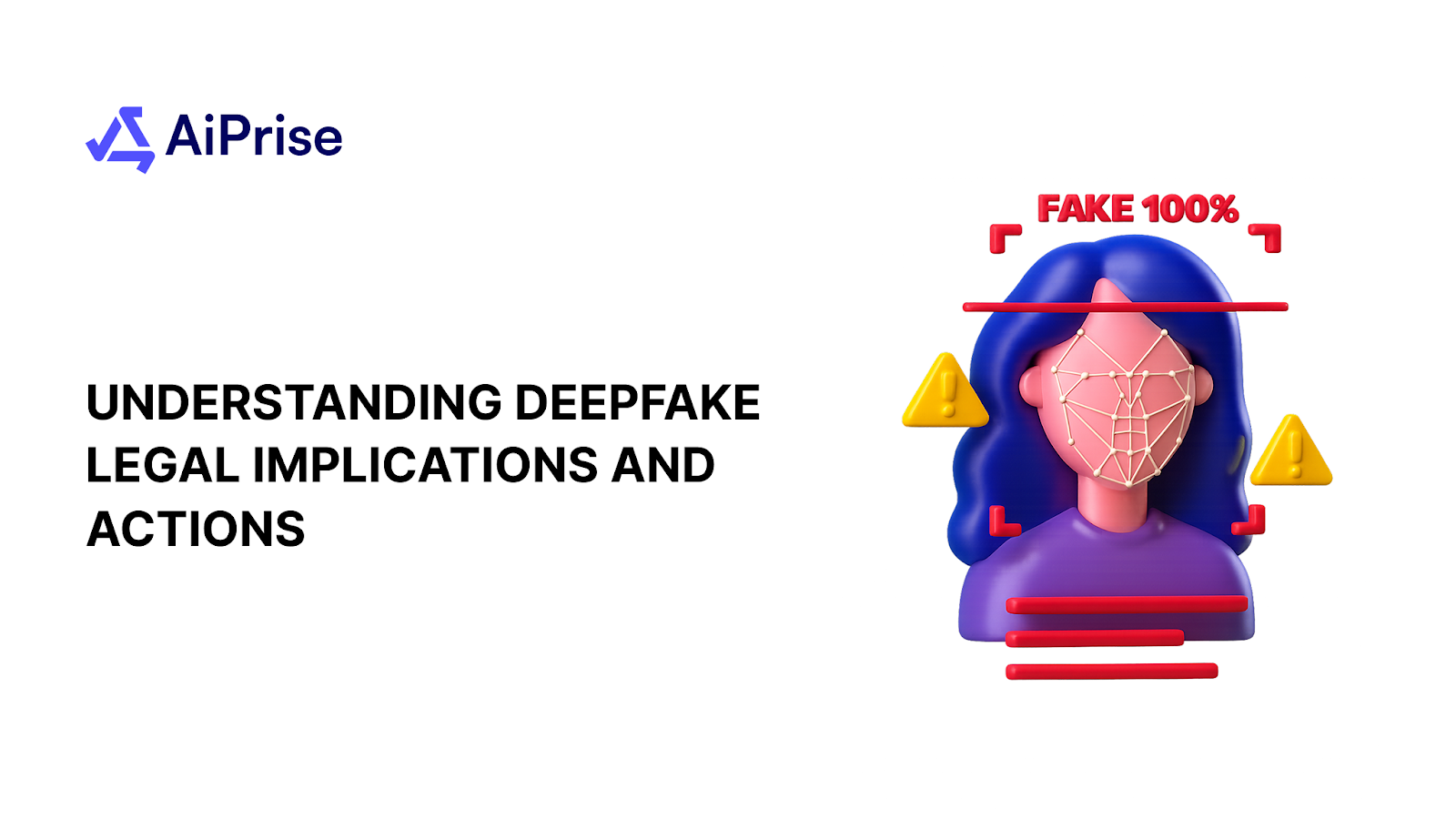
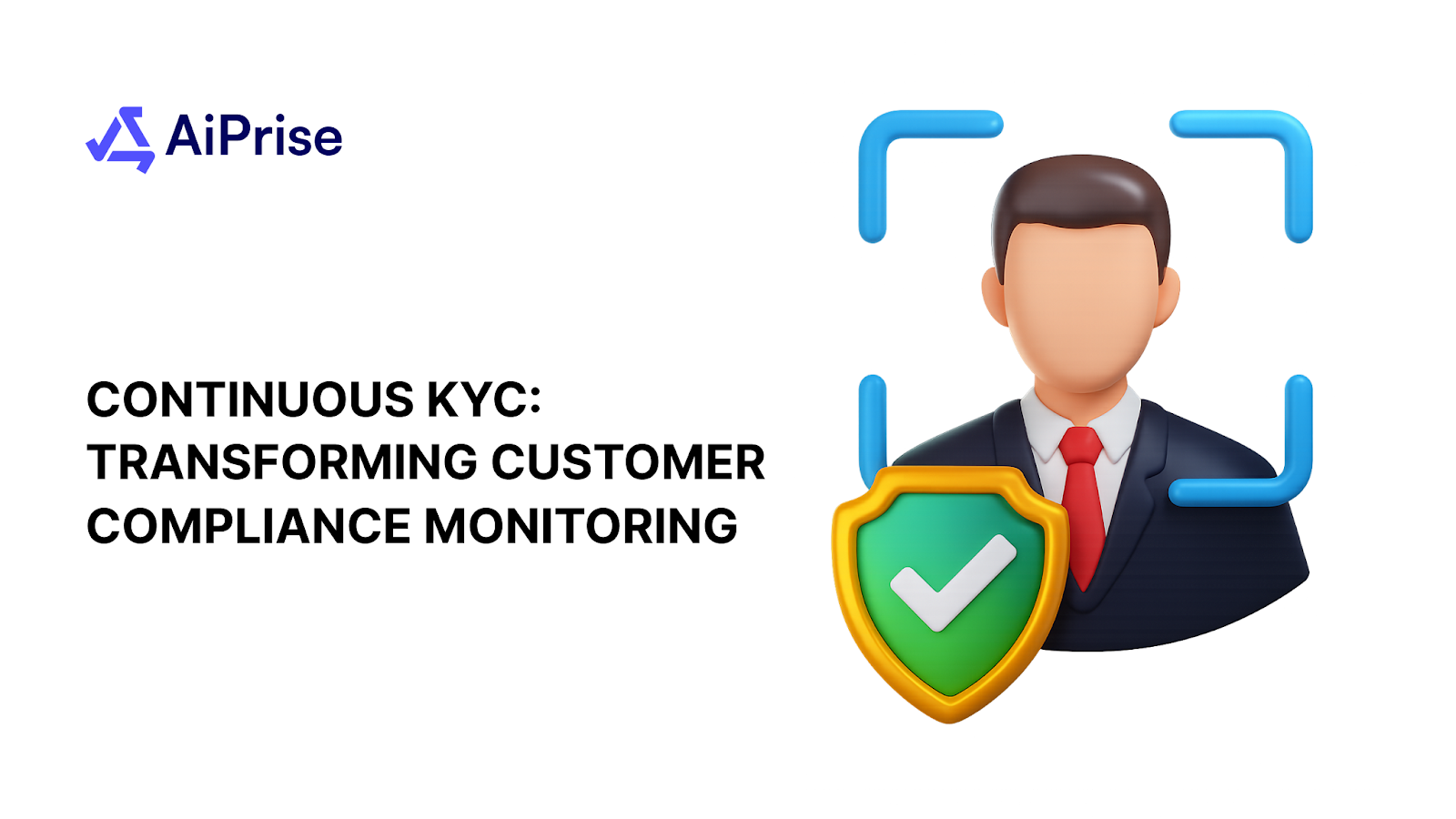
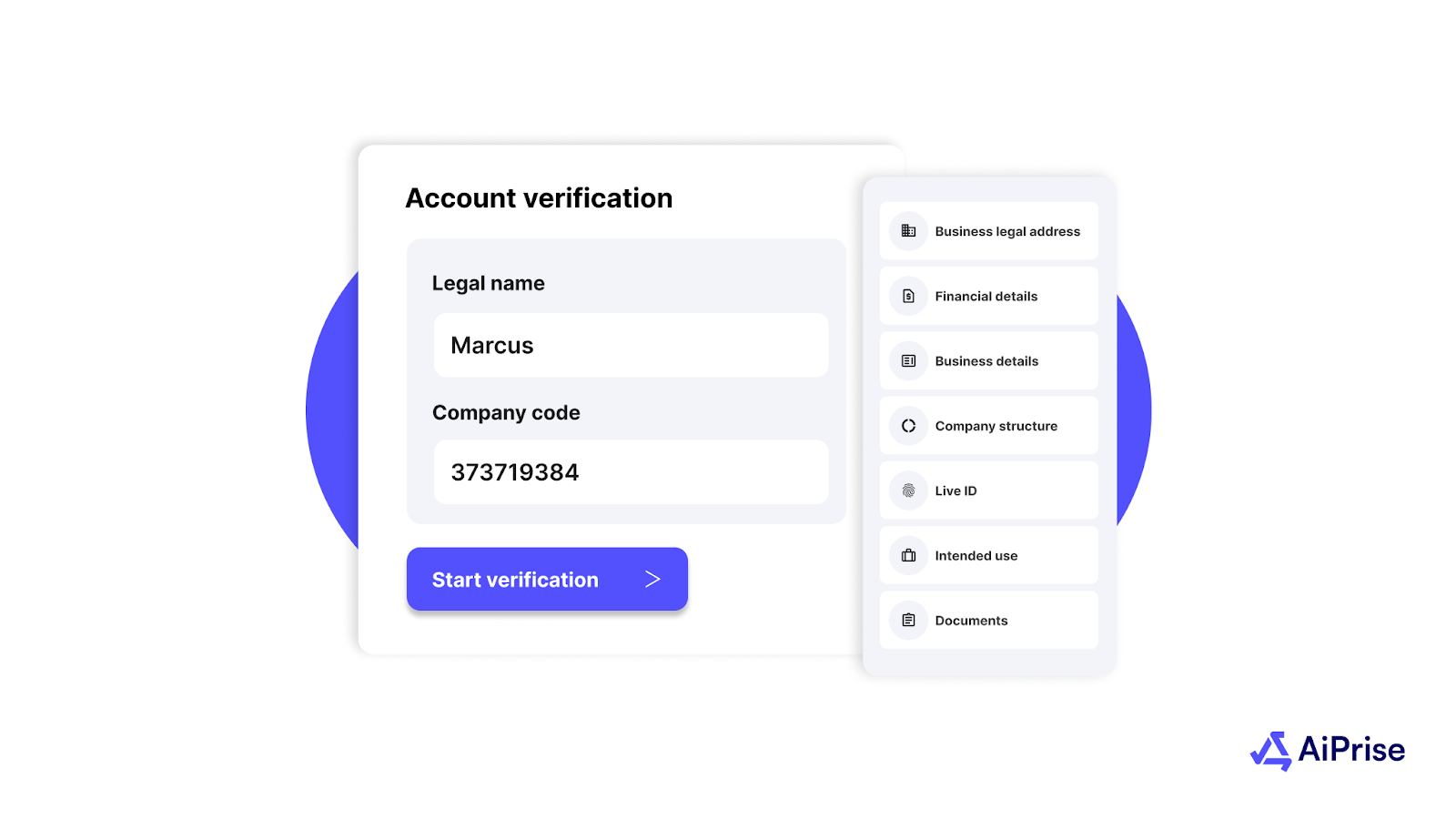
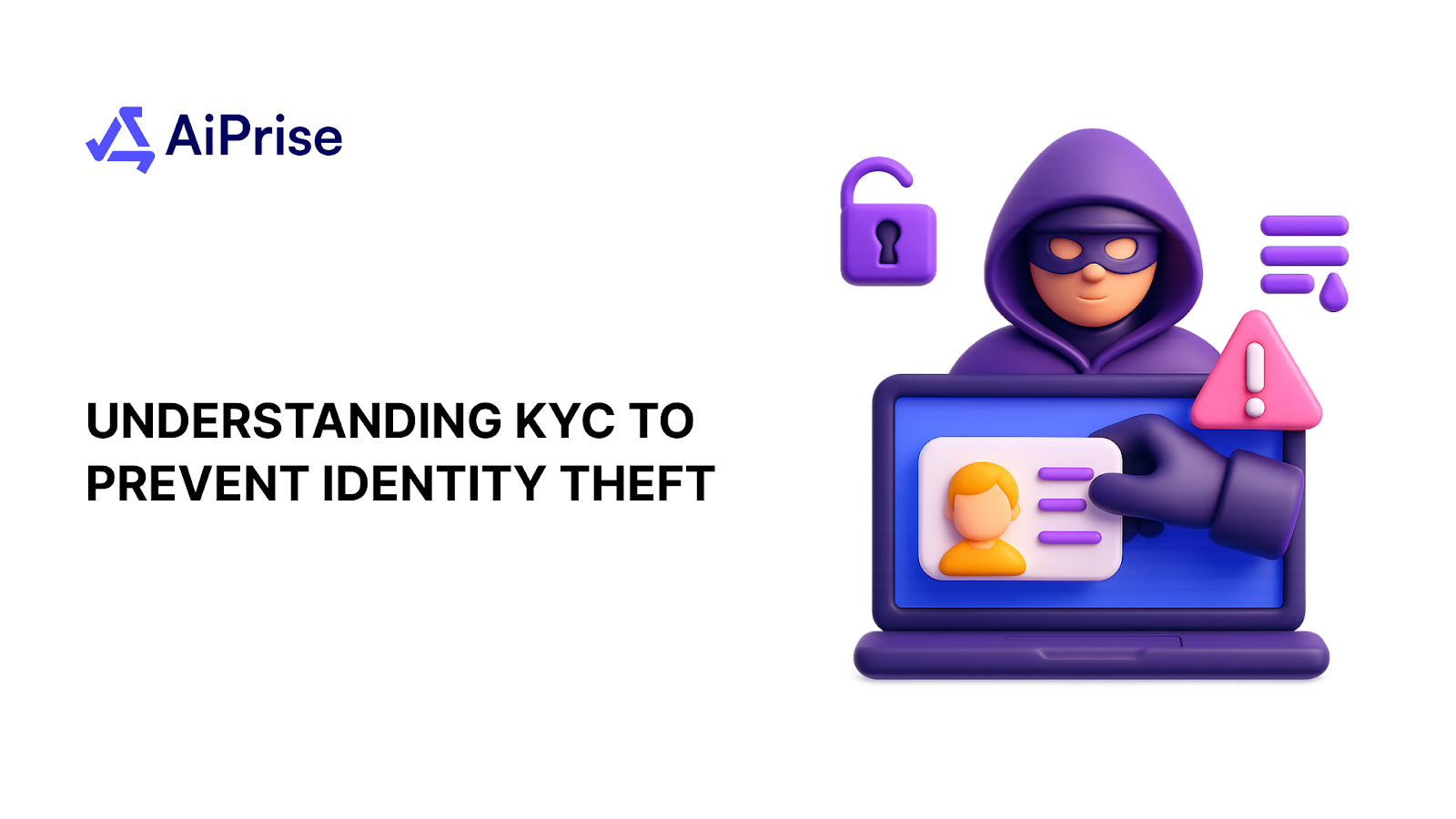


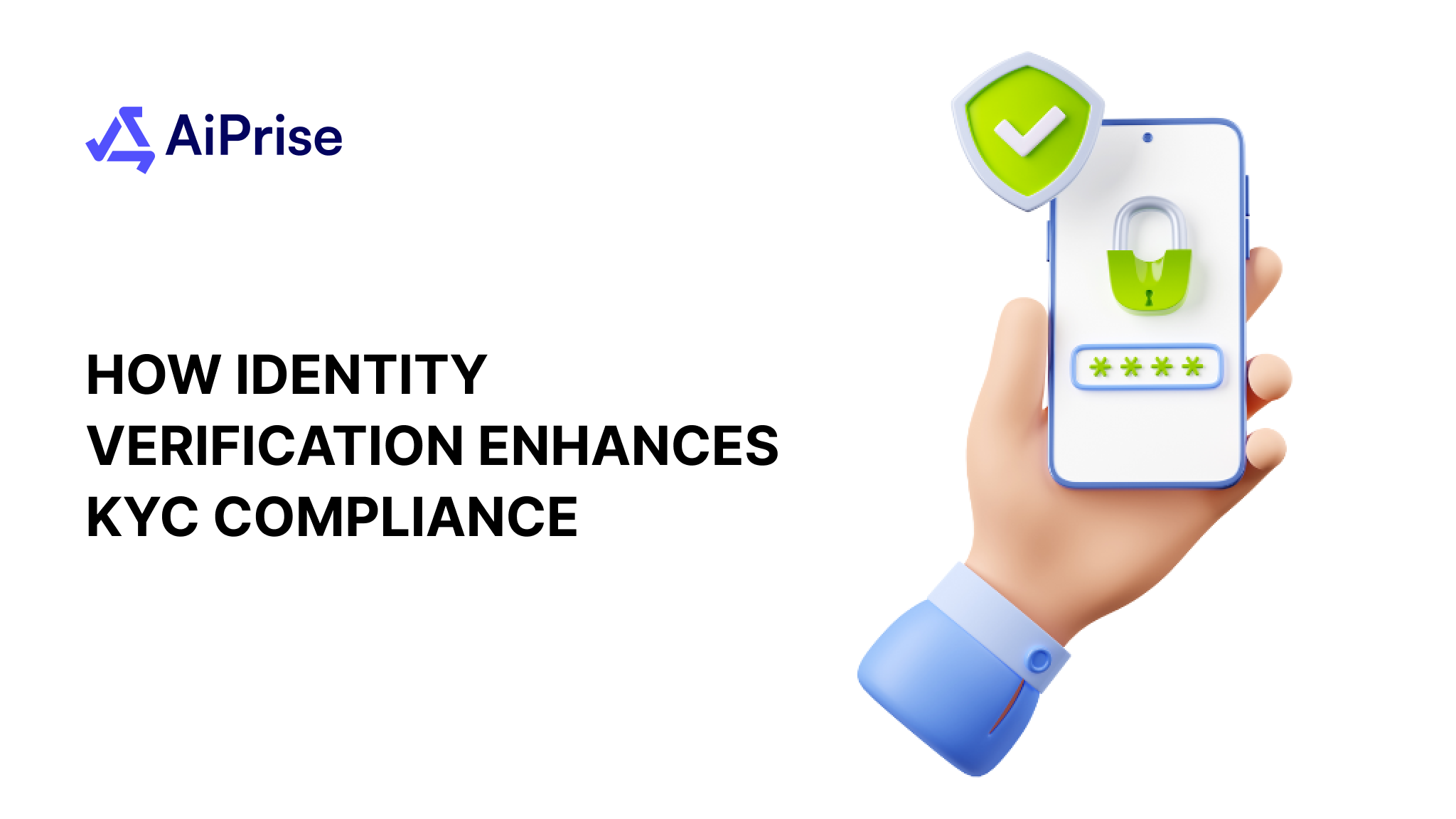

.png)

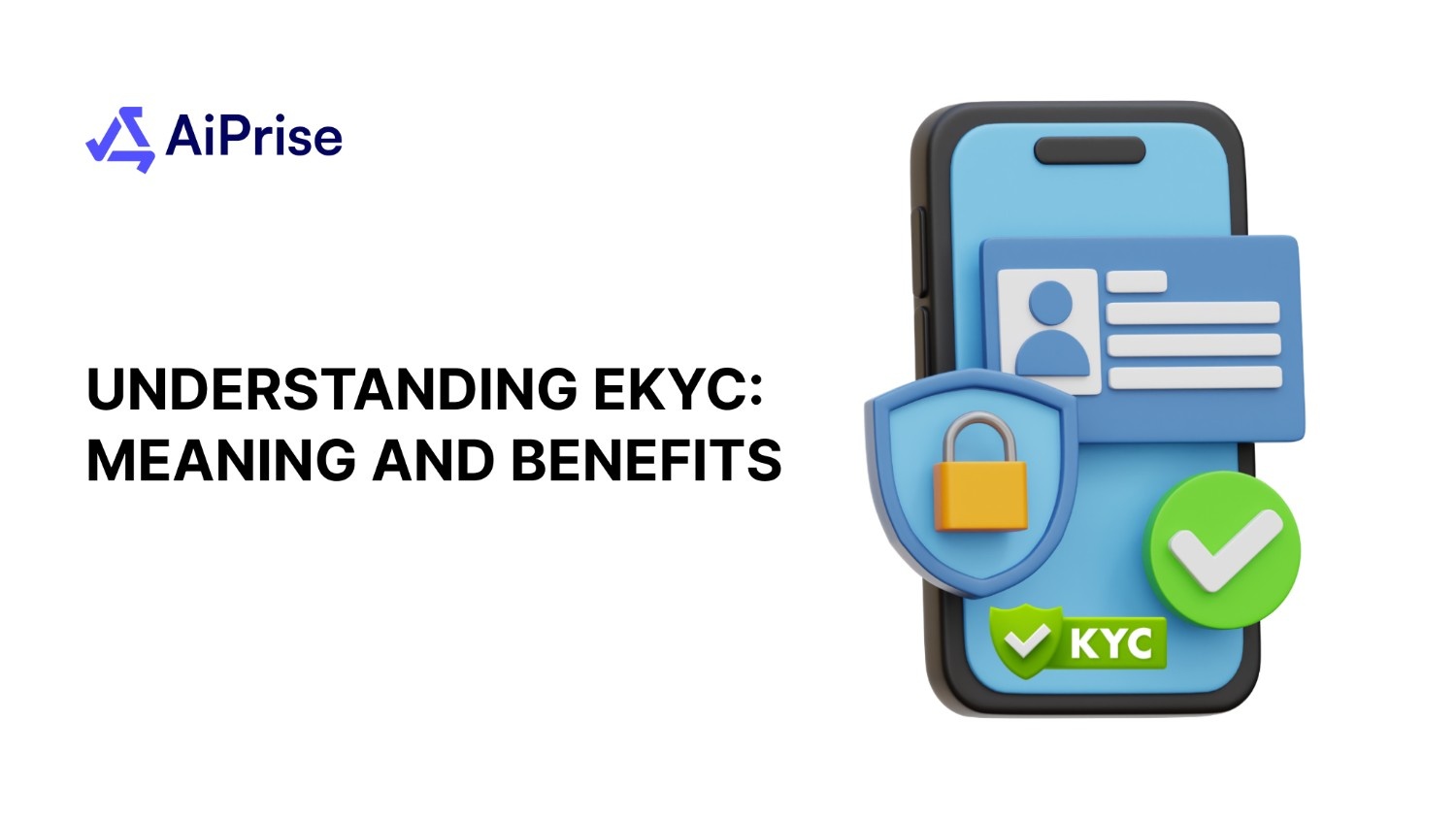
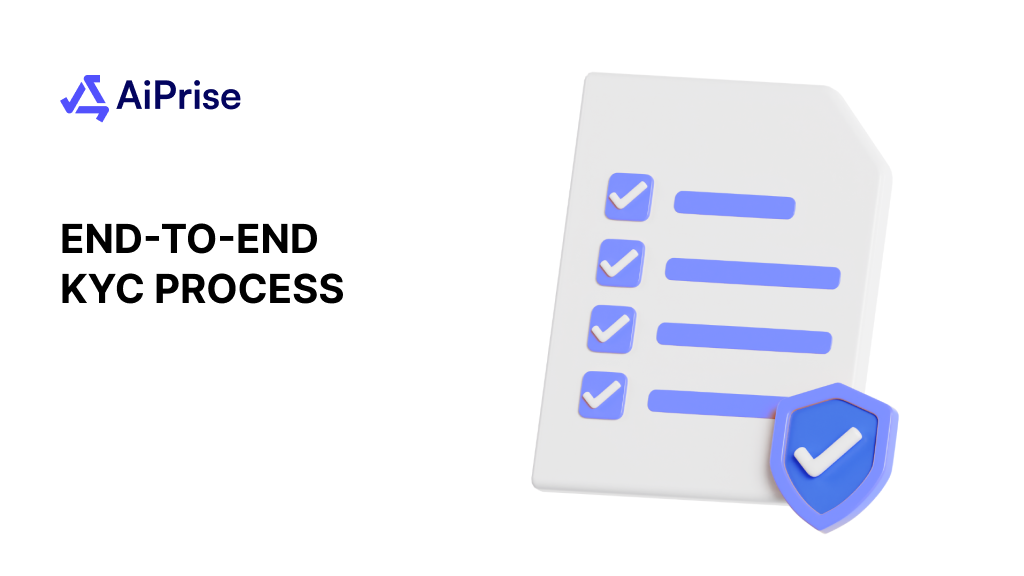

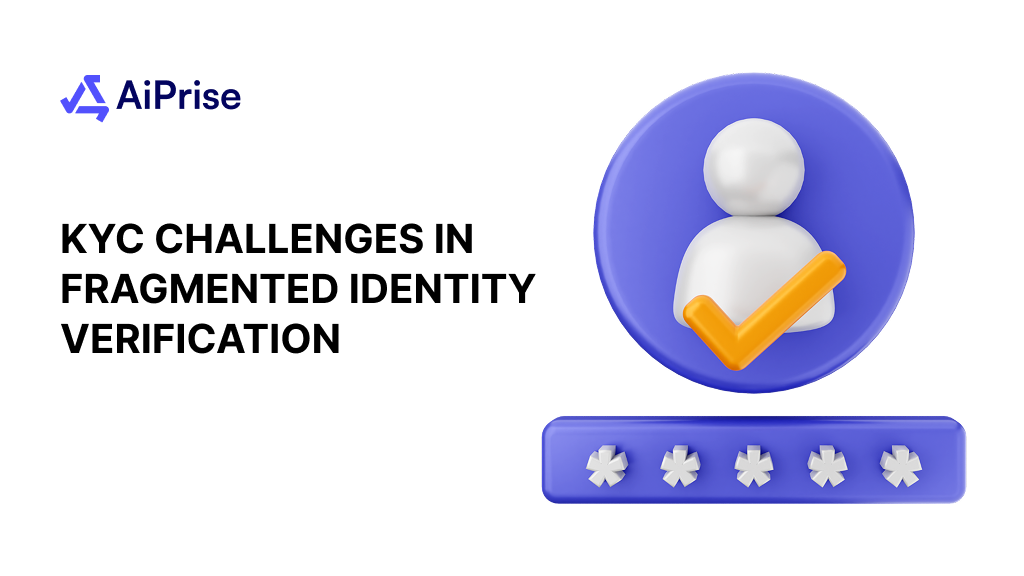
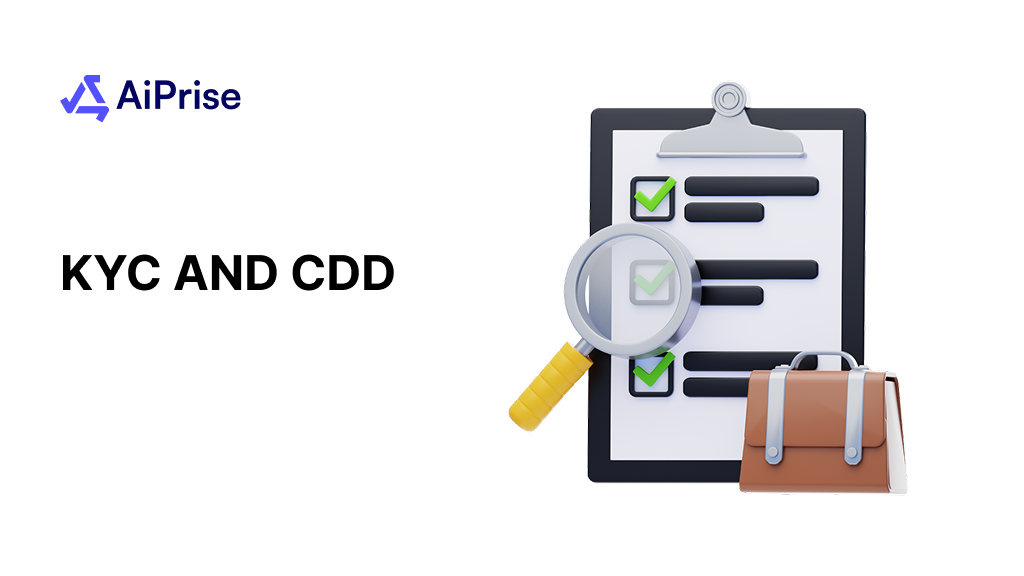








.png)






